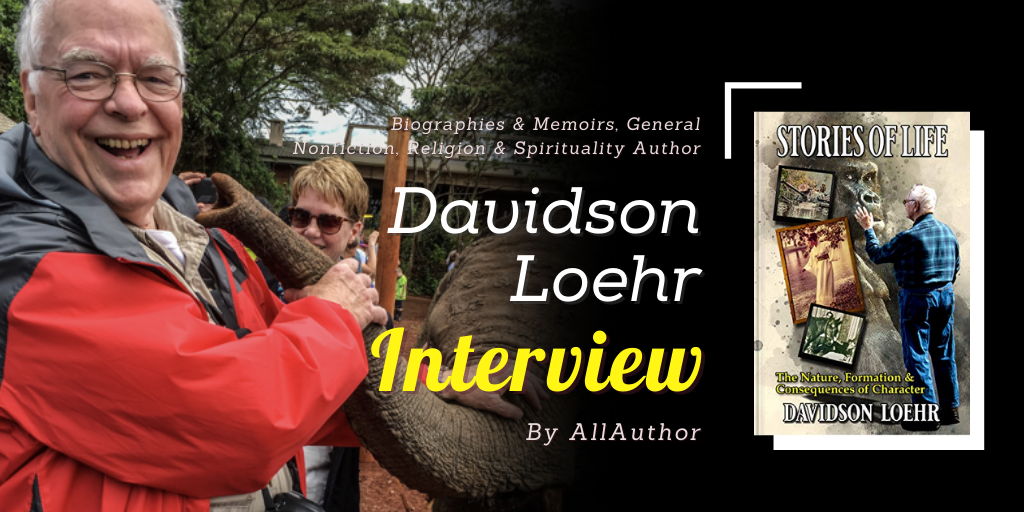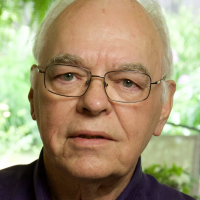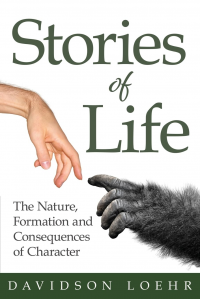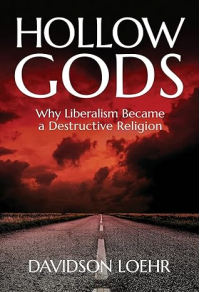Genre:
Biographies & Memoirs General Nonfiction Religion & Spirituality- Country: USA
- Books: 2
- Profession: Retired
- Born: April 29 1942
- Member Since: Oct 2020
- Profile Views: 17,174
- Followers: 166
- VISIT AUTHOR: Facebook, Amazon,
The author’s (my) life was unusual: musician, combat photographer in Vietnam (I’m 78), photography studio owner in Ann Arbor, carpenter, woodworker, student: M.A. in “Methods of studying religion” and Ph.D. in theology, the philosophy of religion, philosophy of science, and Wittgenstein’s language philosophy from the University of Chicago. A year as a staff hospital chaplain (while writing my dissertation), then 23 years as a Unitarian minister. A Fellow in the Jesus Seminar since 1992, and now active in the International Big History Association — present papers at all our biennial meet... ings around the world. Religious/spirit, but heretical — a character trait that goes back to age 1 when I first walked. About half the 97,000-word book is taken up with a wild variety of experiences in my 43 months in the Army, which included remarkable experiences, with General Westmoreland, as The Vietnam Entertainment Officer (Martha Raye, Roy Rogers & Dale Evans, Jennifer Jones, others), then I felt cowardly and ashamed because my Officer Candidate School classmates were all in the field, and one had just been given the Silver Star and Purple Heart. I knew that if I returned home without having experienced war, I wouldn’t want to live with myself. Some poignant and rare experiences in the 7 months as combat photographer and press officer. Some hilarious, many very touching, some quite sad and poignant — and always with the YOUR TURN sections to direct attention back to the reader’s life. From very liberal groundings in religion, thinking outside the box, etc., I have grown to prefer conservative politics and liberal religion. I think, and expand on the idea, that liberal ideology since the mid-60’s has lost its soul and its mind, and may not have much that is healthy to offer the larger world. While this doesn’t take many pages, it’s a memorable/controversial part of the book. My understanding of the whole subject of “Religion” is also … well, it’s good. The heart of any real religion is its answer to our two most fundamental existential questions: Who, at my best, am I? and How should I live, so that when I look back I can be glad I lived that way? read more
Davidson Loehr's Books
Stay in the loop on books by Davidson Loehr. See upcoming and best-selling books by the author here. You'll also find the deals on books by Davidson Loehr.
** Please note that the information or price displayed here may not be the updated. Make sure to double-check the latest book price before buying books.
** Also, there might be other books by Davidson Loehr not listed on AllAuthor.
| Book |
|---|
STORIES OF LIFE: The Nature, Formation and Consequences of Characterby Davidson LoehrPublish: Sep 09, 2020Advice & How To Biographies & Memoirs Religion & Spirituality |
Hollow Godsby Davidson Loehr |
Davidson Loehr Interview On 09, Feb 2021
 "Davidson Loehr finished his Ph.D. and began ministry at his first church in 1986. After music, photography, and woodworking, Davidson has a new obsession: woodturning. Davidson has created a witty, poignant, and brilliant book, STORIES OF LIFE helping the readers look into their own lives."
"Davidson Loehr finished his Ph.D. and began ministry at his first church in 1986. After music, photography, and woodworking, Davidson has a new obsession: woodturning. Davidson has created a witty, poignant, and brilliant book, STORIES OF LIFE helping the readers look into their own lives."
Well, a couple come quickly to mind.
The first one in my book — the dream I had at 21, of taking my first steps when I was 1 year old. I had obviously never forgotten it for 20 years after it happened, even though it only existed in my subconscious. And after my mother said that yes, that’s just how it happened, I thought about what it showed my attitude had been toward people who doubted me, even as a baby. I like the memory and the lesson.
And the second was that memorable Sunday when I was six. First the new Sunday school teacher telling us such a dumb story — the Trinadee, with three odd characters and no plot. Then when I tried to say it was a pretty good story but next time leave the Ghost out — and she told me Jesus didn’t like little boys who called this a story, so I said she could leave Jesus out, too. Then when I went home and my father told me the same story and even said he believed it. Unconsciously but permanently, I was aware of a distance between me and my father that would never be closed.
What did being an author mean to you as a child? What does it mean to you now?As a child, nothing. I probably assumed that if someone wrote something and said it was factual, that it must be. So I trusted the printed word more than I did once I grew older.
As an adult? It’s not about ego. If I have gifts or insights that could be useful to other people, then it’s almost my job to try and share those insights with them: through sermons, teaching, and sometimes writing. I do think I have undervalued my experiences, insights and writing. I never initiated the action leading to either of my books, but was approached by a publisher (for the 2005 book) or a guy in London who, I thought (wrongly) represented a publisher. If I had thought these insights were more valuable 35 years ago, I might have authored a bunch of books by now. Don’t know.
Why did you decide to complete M.A. in “Methods of studying religion” ?I always wanted a bigger picture of important subjects. I was never interested in “brand name religion” (Presbyterian, Jewish, Buddhist, etc.), but rather generic religion: what is this “religion” business about? Forget the brand name stuff. Sticking to the best facts I can get, what does it look like religion is really about. A quick answer comes from etymology (I’ve always liked etymology). The word means “to bind back to” or to connect with again (both meanings suggesting that we think we were once really connected to something — maybe in the womb or at our mother’s breast — but are no longer. And what we choose to bind to, to ground our identity in, is very important. So we should have enough of an independent perspective not to get taken in so easily. The “Methods” course at Chicago (no longer offered in the same way there) taught about eight different methods. Each one was like a lens, and showed a different definition of what “religion” was: theology, philosophy, psychology, sociology, anthropology, archaeology, history, etc. each give you a different picture of what “religion” is. So we need a bigger picture.
How did you begin writing your first story? Did it ever get published?Ah! I graduated from grad school and started my first church as minister in 1986. After preaching for two Sundays and meeting with many members during “candidating week” the director of religious education wanted to meet with me. She said the minister before me had not wanted children either seen or heard (since his children had grown up), and we needed to do something about that — needed to have them in the service for at least the first few minutes. I agreed, but didn’t know how to do it. She said “Well, you could bring them up on the stage and tell them a story.” Hmmm. So when I returned to Chicago, I went to see a woman who lived in the co-op where I had been working as caretaker for 6 years (for a free apartment plus $200/month), a woman who was finishing her PhD in “Religion and literature”. I told her my situation, and said I’d never written a story and didn’t know where to find stories to read to children. She said I should just write them myself, and said I’d only need two books to do it: Bruno Bettelheim’s The Uses of Enchantment, and Vladimir Propp’s Morphology of the Folktale. I bought and read them, and she was right. It helped to back off, see how stories were constructed, what they needed, and so on. Some old members of the church didn’t want “any of those damned children’s stories in the building!” And said if I were going to embarrass myself by telling damned children’s stories, I owed it to the grown-ups to make sure that each week’s story tied in strongly to the day’s sermon topic. This made it more complex. But I liked the challenge, so wrote a one-year set of serial stories that formed a year-long children’s story, in which each story also connected with the day’s sermon. Each Sunday I’d sit in a special chair (made in the 19th century) after the opening words and hymn, and announce “Storytime!” And 20-30 kids, age 4-9 or so, would storm the stage for that week’s installment. (I still have the first year’s stories, printed out as “Storytime, 1986-87) and think they’re actually pretty good.) No, it’s never been published.
What motivated you to share your love of books and writing with the world?In 2004, a few days after GW Bush’s re-election, I changed my sermon (I served a large Unitarian church in Austin at the time) to “Living Under Fascism”. Surprisingly, it went viral on the Internet, and about a month later I got an email from Margo Baldwin, owner of Chelsea Green Publishing Co., saying she’d like to publish either a book-length version of the sermon, or a collection of sermons with a similar perspective. That led to the first book: America, Fascism & God: Sermons from a Heretical Preacher. It was around 13 sermons. They sent a very good editor to Austin for a 3-day weekend, and he went over everything with me: what sucked, what needed work, etc. Their first printing was 10,000, which sold out. (I have since been told that I got screwed on that book. I was given a $5,000 advance, that’s the only money I got from the book.)
How would you describe your journey of being a combat photographer in Vietnam?Well, it’s complex. I always interviewed well, and had both nerve and integrity. So when I was sent to Vietnam to become a forward observer (I’d read before going that the average life expectancy of forward observers with the 1st Infantry Division was 33 days — that’s where I was being assigned. I have never been able to read a map and have no sense of direction, and thought there was no way in hell I wanted to do that.) So I went over a week early before my orders arrived, and arranged an interview in Saigon. I wound up as The Vietnam Entertainment Officer, working in the office that handled all USO shows that came to Vietnam (except Bob Hope — it was so big it had its own office). I loved it, and really thought I had beat the game!
But when an OCS classmate was given the Silver Star and Purple Heart for being a genuine hero, my cocky little world came crashing down, and I felt ashamed and cowardly. Nothing patriotic, mind you. I saw war as an archetypal experience, and knew this would be my only chance for it, and if I returned home without having experienced war I wouldn’t want to live with myself. Still didn’t want to be an FO. Knew a Lt. who was trying to get out of the field. He was press officer for the 11th Armored Cavalry Regiment in Xuan Loc. I thought that was perfect: hell, anybody can write! When I got to the interview, the job description had changed. The Colonel now wanted a combat photography component to what they were doing. So I told him hell, I’ve been taking pictures since shooting for my dad’s newspaper when I was 8. Got the job, bought a Nikon, and had to learn how the hell to use it. It’s ok to lie to get a job, but then you’d damn well better be able to do it very well! I was lucky enough to meet the LIFE Magazine photographer Co Rentmeester, a photographic genius and superb combat photographer. His advice saved my life and — while I would never be of his caliber, I was at least adequate, and got plenty of photos picked up and published.
The experiences I had in that war were, for me, sacred. I wouldn’t trade them for anything. I can still hardly believe many of them.
What challenges did you face while writing your book, STORIES OF LIFE?Challenges? Oh, I guess just how to structure it, what I decided it was really to be about. I wasn’t interested in an autobiography — and it isn’t one, since it ends when I’m around 44. I was interested, always, in character, how it’s formed and how determinative it is in measuring who we are and aren’t. So I wrote it that way. But then it got boring, felt like it was too much about me. So I decided to insert the many YOUR TURN sections in it, where my information just became the raw material helping the readers look into their own lives, the formation of their own character.
What is the most ideal ambiance for you to write in?Several. Ideally, I’d like to be sitting at a restaurant for several hours a day, writing with a fountain pen. With Covid, that doesn’t work. Sitting at my computer is ok, or my laptop. But I’d prefer the fountain pen and (preferably) outdoor restaurant.
What's something on your bucket list that you think is unique?Not much. Love to travel, want to do more of that.
What are some of the books that are really worth reading that you can recommend?Oh, this list is way too long! Everything by Kierkegaard, Wittgenstein, Stephen Toulmin, most of Tillich, much of Mircea Eliade, for starters. Don’t read much fiction — though I’ve learned a lot from really good fiction. I like to use my books as tools.
What is your writing kryptonite? Inversely, what is something that never fails to inspire you?Kryptonite? I suppose self-absorption kills any useful spirit. Being able to think of things in terms of stories is always inspiring.
Do you think someone could be a writer if they don’t feel emotions strongly?Not a very interesting one. Nor could they be if they felt only emotions, not a concern for facts, data, big patterns.
What motivates people to write memoirs of themselves?I suspect narcissism.
Which is the next book you are writing? Give us an insight into it.I have a couple in mind. I’ll tell you about one. It would/will be a series of fairly short (150 page) books under the general title Religion in Ordinary Language. The first volume, which is largely drafted, is a book of prayers — nothing supernatural, nothing theistic, all in plain talk, but all quite spiritual and relevant to life.
Ask Davidson Loehr a Question
Have brimming questions to ask author Davidson Loehr? Ask whatever you like, but keep it appropriate.
** Please note that unanswered questions will not appear on the page. Refrain from posting promotional messages.
Contact Davidson Loehr
The author, a good book and you! Contact Davidson Loehr here.
** Please refrain from spamming and don’t bombard the author with promotional mails/messages. Your IP/Email address may be blocked if found doing so.
Contact Author on:
Facebook,



